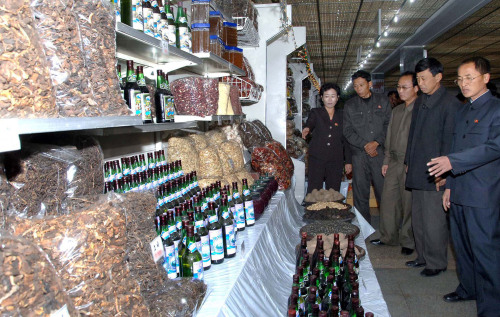A British professor who recently visited North Korea said Pyongyang citizens are still impoverished, though North Korean media are pouring out reports on how their factories and companies have boosted production.
The North Korean mouthpieces, including the North Korean Central Broadcasting Station, have been releasing news reports about how the communist state’s light industries and factories overachieved their initial production targets.
Hazel Smith, professor of security at Cranfield University in the U.K., said in a recent article in current affairs magazine the Diplomat, that ordinary North Korean residents have to scrape by because of limited rations.
North Korean children, who seemed robotic 10 years ago, seemed bright, speaking English words to foreign visitors such as “hello” and “goodbye,” she said.
Still, North Korean people suffer from starvation and hunger, she noted.
“There are still chronic food shortages and so there is a real threat of starvation and hunger. But at the same time, all must pretend to each other that they aren’t reliant on the market for survival,” said Smith, who wrote a book, “North Korea: History, Politics Economics, Society and Reconstituting Korean Security.”
 |
North Korean officials inspect products on display at a store in Pyongyang on Tuesday. (Yonhap News) |
“The government advertises in its national and international propaganda that it continues to provide for the population, yet it hasn’t done so for the best part of two decades,” Smith said.
A North Korean news report on Nov. 7 said a factory in the northeastern border city of Sinuiju posted record high annual production achieving 105.7 percent of its target.
The Korean Central News Agency said on Nov. 5 that many units in the light industry sector saw their production surpass their initial targets as of the end of October.
North Korea normally announces production results in late November or early December, but this year it released them early. The nature of such reports got a little bit stronger, a South Korean government official said.
“North Korean media almost always have released such exaggerated news reports about production achievements. But this year, it is a bit excessive,” an official said.
The official also said it can be broadly viewed as Pyongyang’s attempt to show off its milestone project to become a “prosperous power” in 2012.
However, the North Korean economy has shrunk for two consecutive years, according to data by the Bank of Korea.
The BOK said the communist state’s GDP shrank 0.5 percent year-on-year in 2010, following a 0.9 percent on-year contraction in 2009.
The contraction resulted from chronic food and energy shortages affected by international sanctions and a sluggish manufacturing sector, according to the BOK.
The North’s nominal gross national income was 30 trillion won ($26.5 billion) in 2010, according the BOK said, only 2.56 percent of the South’s GNI of 1,173 trillion won.
By Kim Yoon-mi (
yoonmi@heraldcorp.com)








